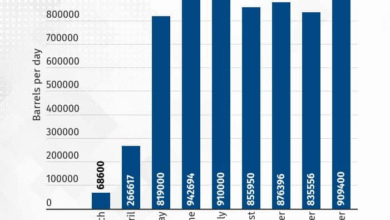Cybersecurity Insights: SEC Hack and Bitcoin ETFs Explained
Cybersecurity is a critical issue in today’s digital landscape, as evidenced by the recent SEC hack that exposed significant vulnerabilities within financial institutions. In January 2024, Eric Council Jr. was sentenced to 14 months in prison for his role in this infamous incident, which involved a SIM swap attack to manipulate the market by falsely claiming the approval of bitcoin ETFs. This fraudulent information temporarily inflated the cryptocurrency’s price by over $1,000 but led to severe consequences when the SEC clarified the situation, resulting in a price drop of more than $2,000. Cybercrime consequences extend far beyond temporary financial losses, affecting trust in regulatory bodies and highlighting the necessity for robust cybersecurity protocols. As we navigate an era of increasing cryptocurrency manipulation, the importance of safeguarding sensitive information against cyber threats cannot be overstated.
As the digital world evolves, safeguarding our online information has become paramount, with cyber defense strategies emerging as crucial for both individuals and organizations. Recently, the case of Eric Council Jr. illustrates the serious repercussions of breaches in electronic security, notably how a SIM swap technique enabled him to orchestrate a misleading statement about financial assets like bitcoin ETFs. The fallout from such cyber intrusions reverberates far and wide, leading to significant market instability and eroding public confidence in securities oversight. In this context, the ongoing battle against cybercrime highlights the urgent need for improved security measures to prevent further incidents of cryptocurrency exploitation. As society becomes increasingly reliant on digital finance, understanding and addressing the risks associated with online activity is vital for maintaining integrity and trust.
The SEC Hack: Unveiling the Breach
In early January 2024, the Securities and Exchange Commission (SEC) was thrust into the spotlight due to a significant cybersecurity breach that shook the financial regulatory system. Eric Council Jr., an Alabama resident, was implicated in this sophisticated attack that led to the exploitation of the SEC’s X account. By orchestrating a SIM swap attack—a tactic that has been gaining traction among cybercriminals—Council managed to publish fraudulent information that claimed the SEC had approved bitcoin ETFs. This misinformation triggered a rapid surge in cryptocurrency prices, illustrating the profound effect that such cyberattacks can have on financial markets.
The fallout from the SEC hack serves as a critical reminder of the vulnerabilities that exist within financial regulatory agencies. The attempt to manipulate the market through deceptive tweets not only impacted investors but also undermined trust in the regulatory framework intended to protect them. As the SEC regained control and clarified the situation, the swift price fluctuations highlighted just how fragile the cryptocurrency ecosystem could be in the face of cybercrime. Such incidents raise questions about the effectiveness of existing cybersecurity protocols in safeguarding sensitive financial information.
Consequences of Cybercrime in Financial Markets
The repercussions of cybercrime extend far beyond immediate financial losses. In the case of the SEC hack, the manipulation of bitcoin’s price due to the fraudulent tweet poses broader implications for market integrity and investor confidence. When a financial regulatory body falls victim to a cyberattack, it not only jeopardizes the credibility of that institution but also raises alarms regarding the security measures in place throughout the entire financial sector. As a result, this incident highlights the urgent need for comprehensive reforms in cybersecurity strategies across all financial institutions to defend against future attacks.
Moreover, the consequences of such cyber offenses can lead to severe legal ramifications for the perpetrators. In this instance, Eric Council Jr. was sentenced to 14 months in prison after pleading guilty to aggravated identity theft and access device fraud, marking a decisive response by law enforcement to deter similar acts of cybercrime. This case underscores the necessity for stringent judicial measures against cybercriminals, aiming not only to punish but to serve as a preventive measure for others contemplating such illicit activities.
Frequently Asked Questions
What are the consequences of a SEC hack on cryptocurrency markets?
A SEC hack can have immediate and drastic effects on cryptocurrency markets, as demonstrated in January 2024 when a fraudulent statement about bitcoin ETFs caused prices to spike by over $1,000. Such cyber attacks not only mislead investors but also undermine trust in regulatory bodies and highlight vulnerabilities in cybersecurity practices.
How does a SIM swap attack facilitate cybercrime?
A SIM swap attack enables cybercriminals to gain access to an individual’s phone number, allowing them to intercept calls and messages. This method was used in the SEC hack case to control an account and post misleading information about bitcoin ETFs, showcasing the severe implications of ineffective cybersecurity measures.
What role does cybersecurity play in the protection of cryptocurrency investments?
Cybersecurity is crucial for safeguarding cryptocurrency investments, as attacks like the SEC hack can manipulate market prices. Strengthening cybersecurity protocols helps prevent unauthorized access and ensures that investor confidence is maintained in financial markets, particularly during fluctuating conditions.
What are the legal consequences of engaging in cybercrime, such as cryptocurrency manipulation?
Engaging in cybercrime, including cryptocurrency manipulation, can result in severe legal consequences. For example, Eric Council Jr. was sentenced to 14 months in prison for his participation in the SEC hack, which involved conspiracy to commit aggravated identity theft. Legal repercussions serve as a deterrent against such cybersecurity breaches.
What measures can financial institutions take to enhance cybersecurity against attacks?
Financial institutions can bolster cybersecurity by implementing multi-factor authentication, conducting regular security audits, and training employees on phishing detection. The SEC hack illustrates the necessity for stringent cybersecurity measures to mitigate risks associated with cybercrime and ensure investor protection.
| Key Points | Details |
|---|---|
| Eric Council Jr. sentenced | 14 months in prison for hacking the SEC’s X account |
| Nature of the cyber attack | SIM swap attack led to a fraudulent tweet about bitcoin ETFs |
| Market impact | Bitcoin price surged by $1,000 before plummeting by $2,000 |
| Council’s actions | Pleaded guilty to conspiracy, identity theft, and fraud, posed as SEC employee |
| Evidence gathered | Fake IDs, portable printer, incriminating search history found |
| Defense argument | Lack of prior record and mental health issues cited for a shorter sentence |
| Court’s decision | Sentence lower than prosecutor’s request, highlighting cybercrime complexities |
| SEC’s response | Announced new rule changes for bitcoin ETFs soon after the hack |
| Implications for cybersecurity | Highlights vulnerabilities in financial regulatory agencies needing stronger protections |
Summary
Cybersecurity remains a critical concern in our increasingly digitized economy, as highlighted by the recent case of Eric Council Jr. His 14-month prison sentence for hacking the SEC’s X account reveals significant vulnerabilities within financial institutions’ cybersecurity protocols. This incident underscores the urgent need for enhanced security measures to protect against similar cyber threats that can disrupt markets and undermine trust in regulatory bodies.




